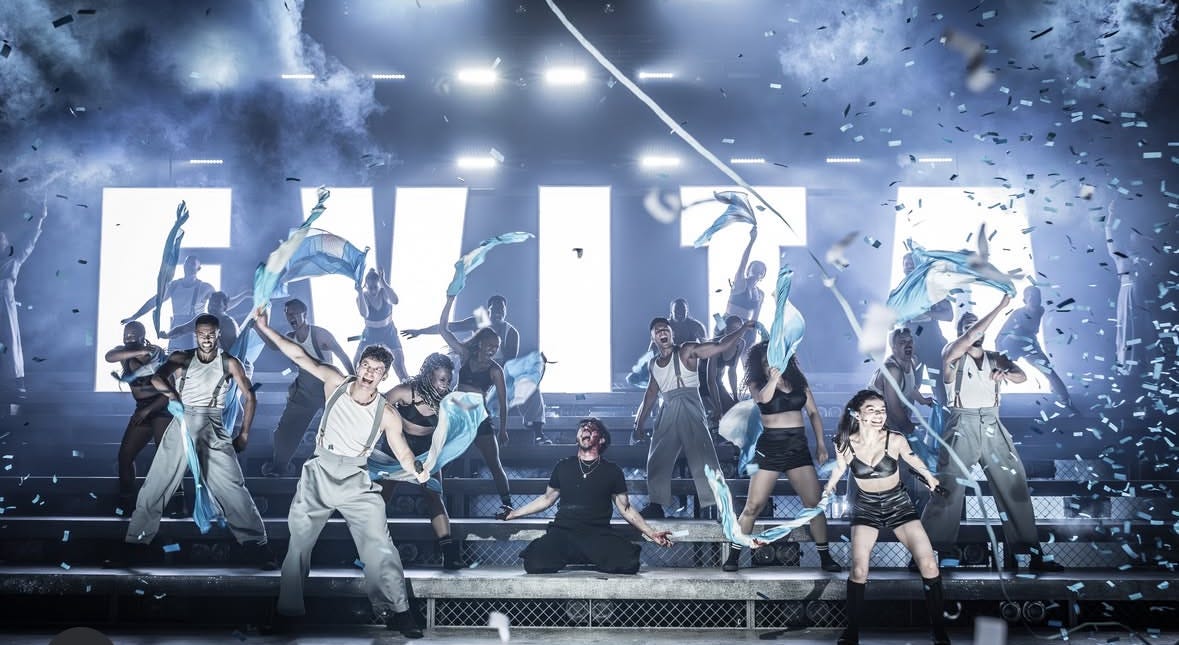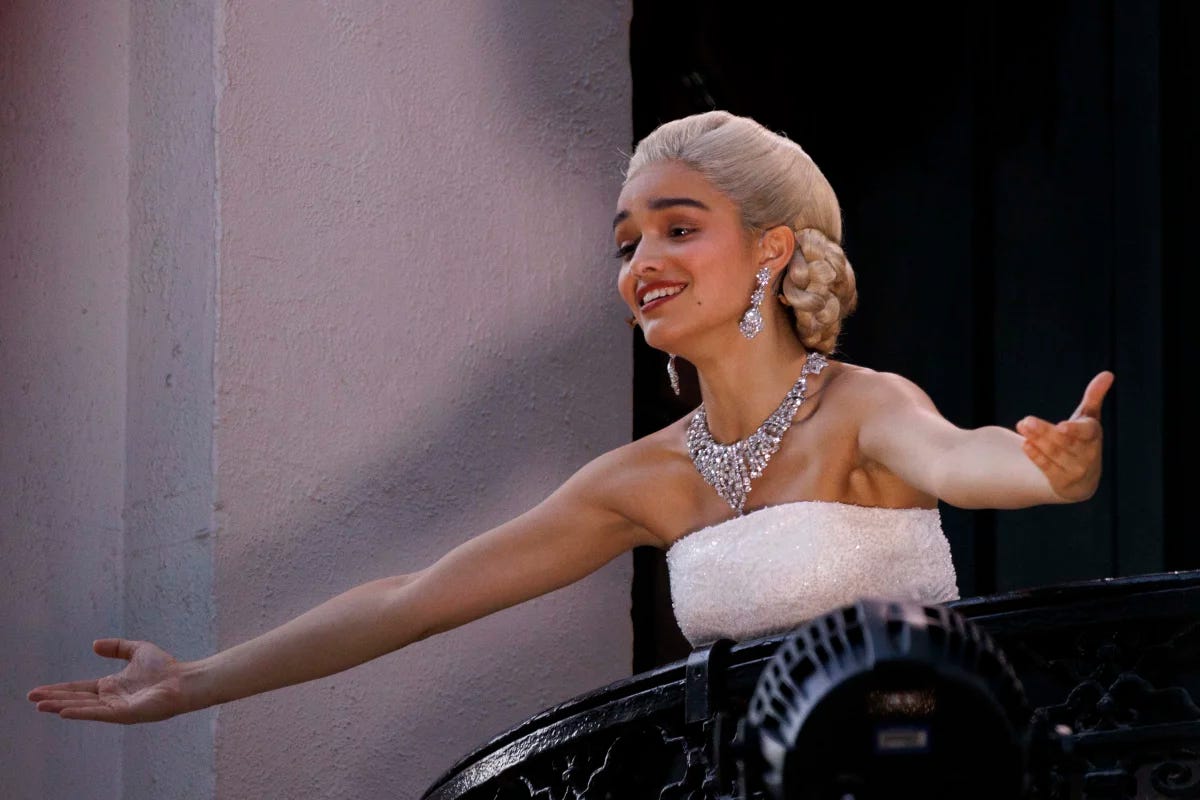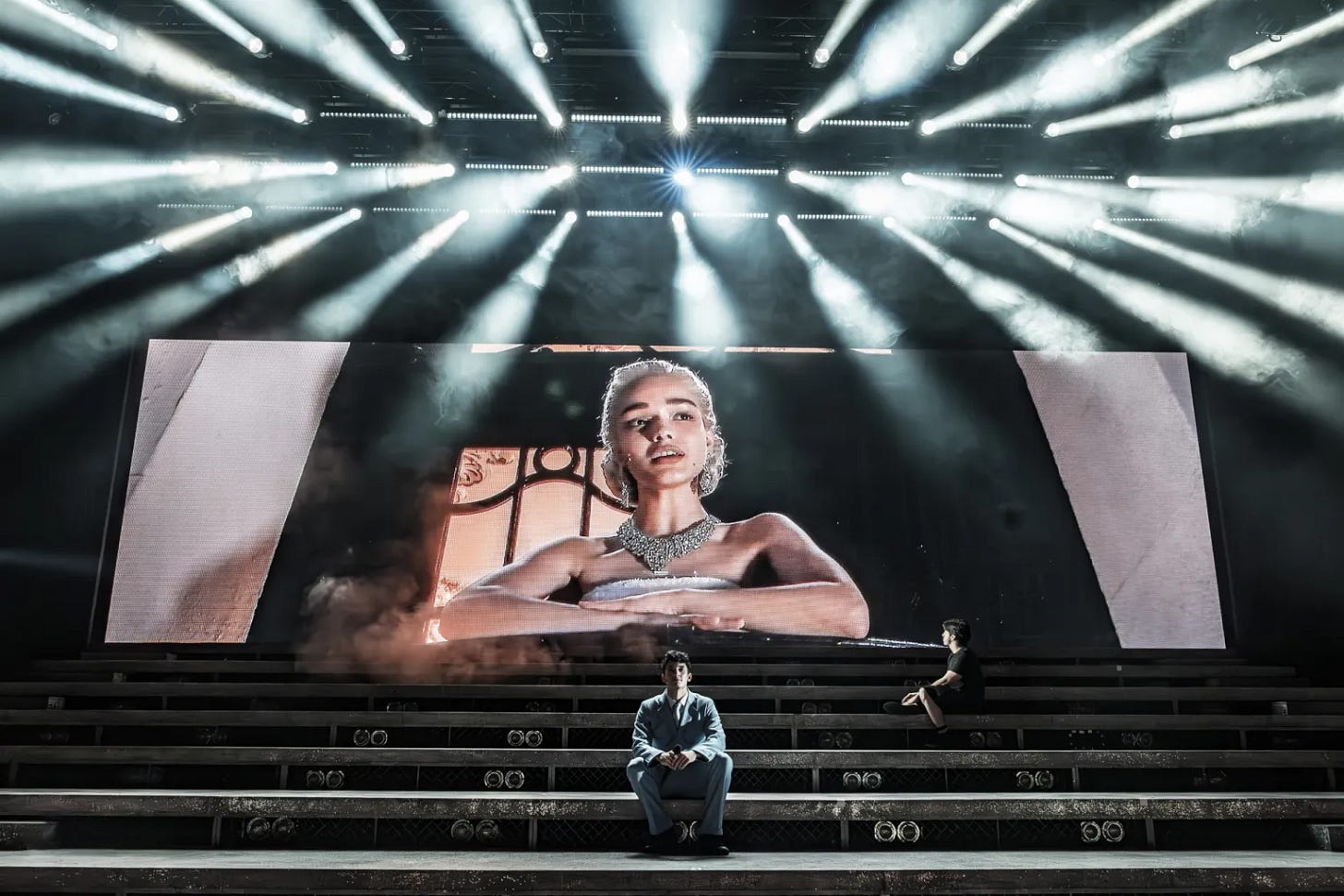ONE only needs to revolutionise theatre once to secure one’s legacy.
Giving a show a contemporary spin is fine, but Jamie Lloyd’s production of EVITA (a reworked version of the 2019 Open Air piece) substitutes decibels for drama.
If ever a subject suited director-slash-mogul Lloyd’s myth-making artistic instincts, this is the one.
Written by Andrew Lloyd Webber and Tim Rice, it tells the story of Eva Perón, first lady of Argentina from 1946 to 1952.
Perón’s journey was nothing short of extraordinary: born illegitimate and raised in hardship, she defied society norms — adored by the masses, yet mired in controversy.
Rachel Zegler, in fine voice, makes her West End debut as Evita, the icon: a glamorous populist. She stands as both a symbol of female ambition and a cautionary morality.
His Evita is so alienating - how to put this? - because Lloyd has done all this gimmickry before. And having no emotional centre, this production leaves little impression — only a chill. This pouting Evita evaporates.
Furthermore, Soutra Gilmour’s bare design, with just a set of steps, leaves us little to get excited about. White balloons go pop. Handheld microphones are passed around, a large EVITA sign looms, coupled with a jagged sound. We are told to vote.
To that end, Lloyd’s fragmented production holds you, in a suffocating way. It's all over-deliberate, metallic, and the nightmarish choreography (Fabian Aloise) doesn’t make the story accessible - it drove me up the wall.
Along the way, the dedicated young dancers push their bodies to extreme physical limits, twerking, spinning and stomping around. Yet they rarely convey identifiable emotions or ideas. Stomp, stomp, stomp.
Anyway: populism, whether left or right, always ends badly. Eva and her repellent husband resented critics. They plotted against the middle classes. They created division.
James Olivas is a strangely laid-back Juan Perón, relaxed to the point of blankness. His singing is, unfortunately, flat. But he’s hot.
Anyhow. As everyone knows, vast crowds are gathering daily outside the London Palladium to watch tiny Zegler sing “Don’t Cry for Me Argentina”, the show’s signature song, from the balcony — while paying theatregoers inside see it on a screen.
Don’t Cry for Me— incidentally the actual words carved on Eva’s tomb in Recoleta Cemetery — unfolds at the start of the second act.
Zegler, with her sparkling jewels, blonde hair scraped back, jewellery and a white dress ablaze, is made up to look like Eva briefly, but this is hardly enough to carry the production. Despite her impressive vocal performance, we're never remotely tempted to cry for her.
Of course, it’s well done for what it is: those who made it are experts at manipulating responses; they are like Pavlov’s dogs, turning the hoipolloi into salivating spectators.
Whichever way you slice it, the slick filmed element— both cynically brilliant and artistically effective — is the theatrical stunt of the year. Bueno!
Then again, Lloyd is a fan of film techniques, first adapted by Pina Bausch. It works sometimes, like when Romeo scored poison in an alleyway in his recent ‘Romeo & Juliet’.
And it worked with the title number from Lloyd Webber’s Sunset Boulevard, with Tom Francis singing as he walked from his dressing room to the Strand and back into the theatre.
Here, the highlight of this evening, though, comes during “Another Suitcase in Another Hall,” sung beautifully by Bella Brown - she nails Lloyd Webber’s simple, sweet melodies and quietly devastating lyrics by Rice.
Impressively, the score goes from tango to rock in ten seconds. And harmonies are mostly clear and balanced despite their rock video energy.
Meanwhile, Diego Andres Rodriguez as narrator Che— drawing constant attention to Evita’s wiles and weaknesses— sings well.
However, near the end, he strips to black pants, before buckets of coloured paint and confetti tar and feather him. The front row is a splash zone.
Look, the most irritating thing is that Lloyd himself almost seems to be conscious of the minimalist creative pitfalls.
Is he trolling us?
“You let down your people, Evita,” Che sings. She let down the poor, providing cover for a fascist dictatorship, by squirrelling away charity cash, and by distracting from her husband’s protection of Nazi war criminals.
In the end, Evita perishes. It’s no coincidence we don’t care about character deaths. Lloyd’s hip people are uninteresting because characters and individual fates aren’t big enough for certain big theatre directors.
Along with the score, that sinks into a trough of repetitiveness, blue confetti at half time adds entertainment, but it lacks impact. It gets the material across, but does little of any note with it.
With every scene, Lloyd lays out the image, the music, and the movement concept, but rarely allows these elements to develop or to acquire nuance. It is relentless.
What you get is spectacle, but very little variety - the tender moments lost. After we’ve watched a director loading the dice, it’s not really much fun watching him roll them.
Lloyd will next direct Samuel Beckett’s Waiting for Godot on Broadway, reuniting Keanu Reeves and Alex Winter after Bill & Ted’s Excellent Adventure.
Certainly, this is what populism looks like.









